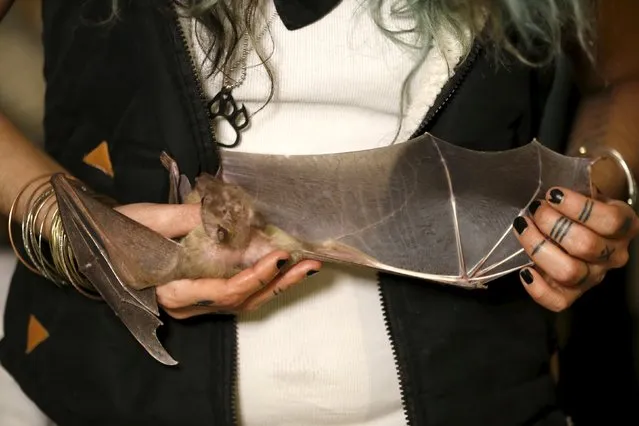
Israeli woman, Nora Lifschitz, 28, holds an injured Egyptian fruit bat at her home in Tel Aviv February 21, 2016. Lifschitz says that she began caring for injured fruit bats from her home two years ago and now has some 70 of the flying mammals which she plans to release back into nature once they are healthy. (Photo by Baz Ratner/Reuters)

Israeli woman, Nora Lifschitz, 28, treats injured Egyptian fruit bats at her home in Tel Aviv February 22, 2016. (Photo by Baz Ratner/Reuters)
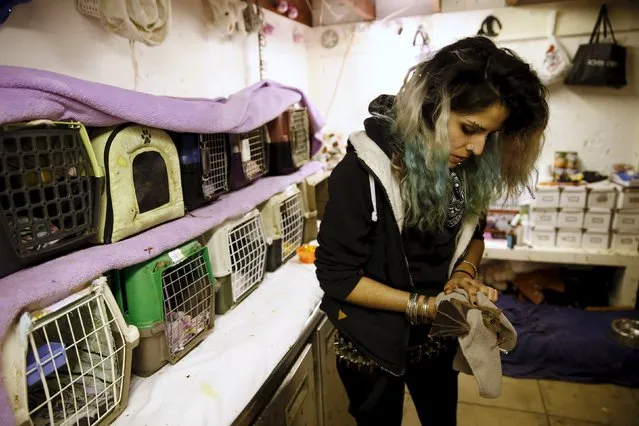
Israeli woman, Nora Lifschitz, 28, treats an Egyptian fruit bat at her home in Tel Aviv February 22, 2016. (Photo by Baz Ratner/Reuters)
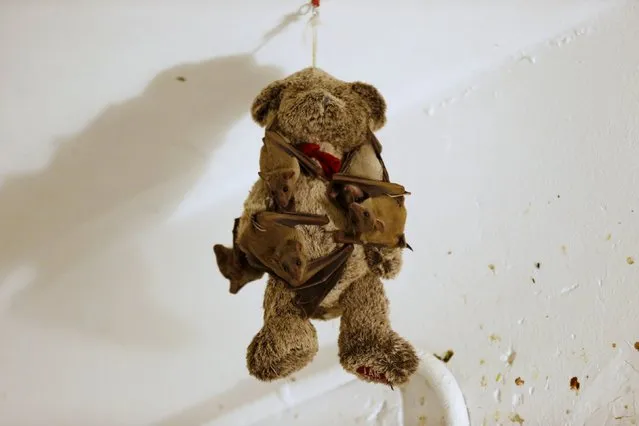
Injured Egyptian fruit bats hang on a teddy bear at the home of Israeli woman, Nora Lifschitz, 28, in Tel Aviv February 21, 2016. (Photo by Baz Ratner/Reuters)
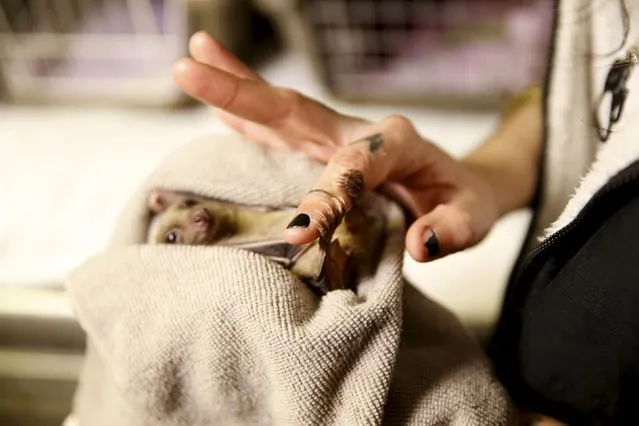
Israeli woman, Nora Lifschitz, 28, holds an injured Egyptian fruit bat at her home in Tel Aviv February 21, 2016. (Photo by Baz Ratner/Reuters)
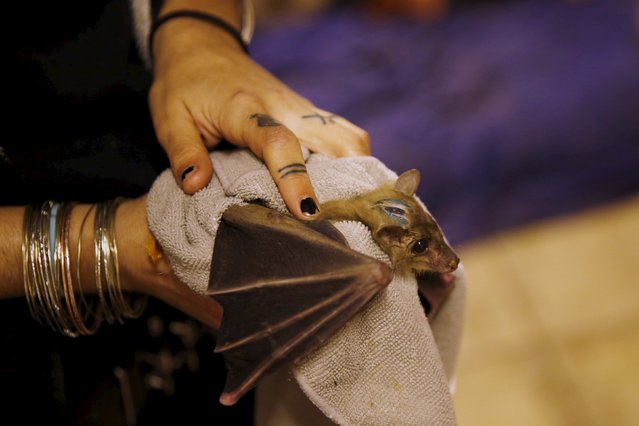
Israeli woman, Nora Lifschitz, 28, holds an injured Egyptian fruit bat at her home in Tel Aviv February 22, 2016. (Photo by Baz Ratner/Reuters)
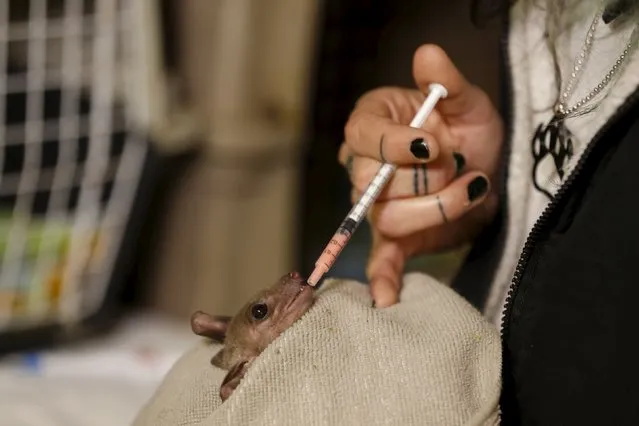
Israeli woman, Nora Lifschitz, 28, feeds an injured Egyptian fruit bat at her home in Tel Aviv February 21, 2016. (Photo by Baz Ratner/Reuters)
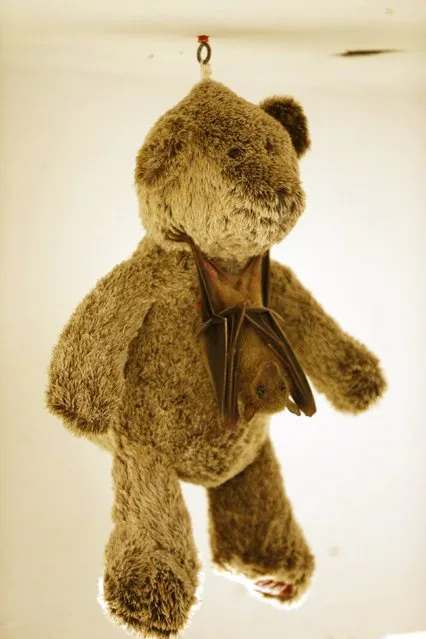
An injured Egyptian fruit bat hangs on a teddy bear at the home of Israeli woman, Nora Lifschitz, 28, in Tel Aviv February 21, 2016. (Photo by Baz Ratner/Reuters)
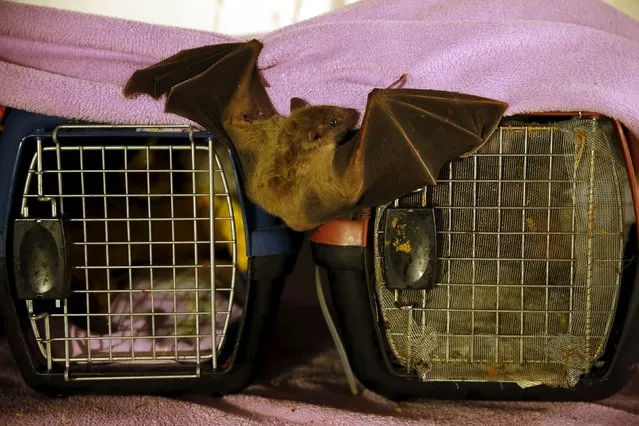
An injured Egyptian fruit bat perches next to cages at the home of Israeli woman, Nora Lifschitz, 28, in Tel Aviv February 22, 2016. (Photo by Baz Ratner/Reuters)
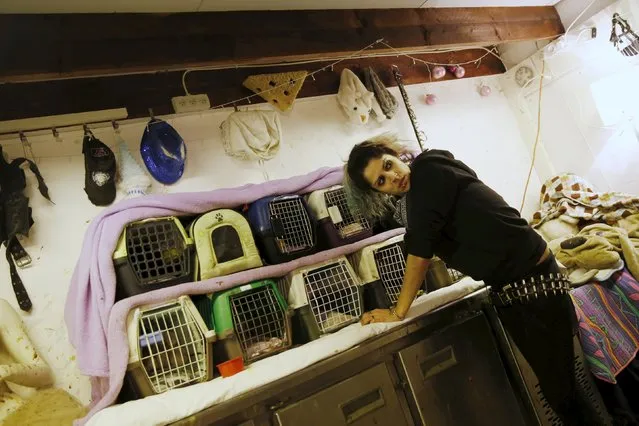
Israeli woman, Nora Lifschitz, 28, treats Egyptian fruit bats at her home in Tel Aviv February 22, 2016. (Photo by Baz Ratner/Reuters)
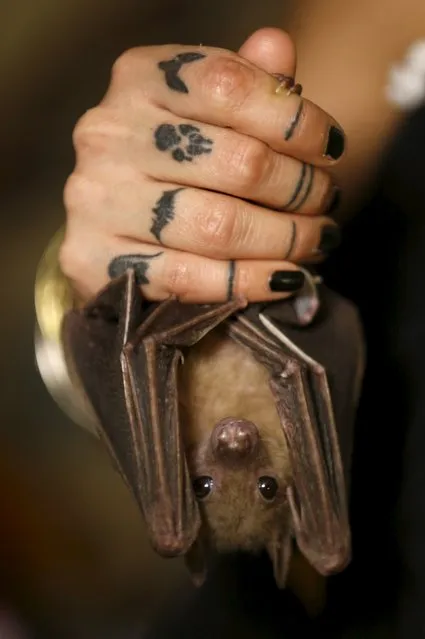
Israeli woman, Nora Lifschitz, 28, holds an injured Egyptian fruit bat at her home in Tel Aviv February 21, 2016. (Photo by Baz Ratner/Reuters)
24 Feb 2016 13:10:00,
post received
0 comments
